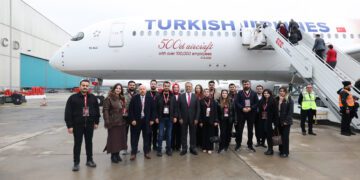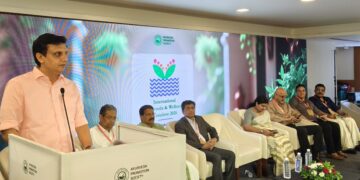
Our global experience as the world’s largest travel insurer and partnering with some of the largest travel providers across multiple countries has given us unique insights into their needs and expectations. To maintain growth and boost the Indian economy, travel providers should familiarize themselves with the key emerging travel trends that will help attract tourists and drive destination loyalty and advocacy.
New experiences that travellers want: A focus on non-traditional, luxury, and wellness
The first trend we’re witnessing is a growing demand for new and non-traditional travel experiences. This is driven by post-pandemic attitudes, where travellers are moving away from conventional tourism in favour of more personally meaningful destinations and offbeat experiences. 49% of travellers globally seek to be immersed in local cultures and products, while 50% want personalised experiences and activities.
For example, after long periods of isolation and self-reflection, there’s a demand for wellness and self-care, with more travellers looking to reconnect with themselves and their wellbeing. The Global Wellness Institute forecasts a 21% annual growth rate in wellness tourism between 2020 – 2025, and with its wide range of offerings, India is well-placed to cater to this market. Wealthy travellers are also increasingly prioritising experiences, with more than half (52%) now preferring to spend their money on luxury experiences rather than luxury goods.
To meet this demand, travel providers can look to collaborate with partners to curate these local experiences as packages. For example, hotels can partner with the likes of national parks to design off-the-beaten-path tours, fitness and spa providers for wellness retreats, or malls for shopping experiences.
Changing traveller characteristics
Another key trend we are witnessing in India, is that travellers are spending more discretionary income on travel, with many planning multiple shorter holidays and staycations domestically, alongside longer overseas vacations. According to Thomas Cook India and SOTC Travel, travellers in India are spending up to 15% more year-on-year.
With the growth of flexible working options following the pandemic, digital nomads continue to make any possible location their office, which contributes to both domestic and international travel. These individuals travel freely and work remotely, seeing themselves more as temporary residents than tourists. Some might be choosing to work overseas as a way to reunite with loved ones, what we call reconnection travel, after long periods of separation during lockdowns. Hospitality players in India could look at offering digital nomad packages, which could be coupled with luxury or wellness experiences.
Travellers are also becoming more demanding, expecting efficient and intuitive experiences that deliver instant gratification. This immediacy has led to greater competition among travel suppliers for loyalty, prompting companies to focus on eliminating friction while maintaining a human touch in travel services. Since the pandemic, people have become warier before travelling, with concerns such as getting sick or stuck in a country due to sudden lockdowns. More than ever, they need their concerns and anxieties addressed from the start, even prior to the trip, before they can have a smooth experience.
Ecosystem partnerships key to traveller peace of mind
To help mitigate traveller concerns, travel providers can partner with ecosystem partners such as travel insurers, as the right policies can help to address some of these concerns and provide peace of mind from the start. Travellers from India are especially looking for policies that support them during unforeseen circumstances such as flight disruptions and cancellations and insurers, including Allianz Partners, are looking at providing such products that provide greater value.
Similarly, travel providers should also have conversations with their guests on the types of insurance they should be purchasing before a trip. For example, thrill seekers engaging in adventure or visiting remote locations should consider specialised coverage for potential accidents or injuries. These personalised experiences, powered by human touch, will keep travellers coming back again, and our customers have told us that coupling travel insurance with their core products or offerings resulted in better conversions of their core offering.
Whether it’s short-term tourists or long-term visitors, Asia Pacific continues to be a tourism hotspot globally, with visitors expected to increase from 619 million in 2024 to 762 million in 2026. With its vast range of offerings and airport connectivity, India is well-placed to target this market to help boost its economy. This isn’t without its challenges though as tourism continues to be competitive, especially amongst its neighbours. The key will be reducing travel tension to improve experiences and to turn travellers into returning guests. Partnerships will be key to ensuring seamlessness, and companies that partner with travel insurance providers to enhance customer care can differentiate themselves by offering peace of mind throughout the entire travel experience.
Vinay Surana is the Regional Managing Director – Asia Pacific, Middle East & Africa of Allianz Partners.
Follow BOTT on LinkedIn, Facebook, Twitter & Instagram
Subscribe BOTT Channels on WhatsApp & Telegram to receive real time updates



































